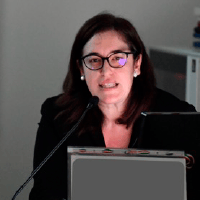Strengthening of the Italian Research Infrastructure for Metrology and Open Access Data in support to the Agrifood
UNIRM3 – Training, education and co-creation
(Reference person: Cesare ManettiI
The experiences of Environmental Biology Dept. and Communication and Social Research Dept. contribute to a transdisciplinary approach to design courses and modelling of citizen’s participation to deliberative and bottom-up processes about environmental problem and their social implications. The OU has log-standing experience in the creation of University Courses innovative and multidisciplinary: Master’s Degree Programme in Social Planning for Sustainability, Innovation and Gender inclusion and Master’s Degree Programme in Food Science & Technology, an Inter-University Course, are the results of integration of competencies of more Departments of and adopt novel didactical approach. Also for PhD programmes, there are interesting experiences of multidisciplinarity. In particular, METROFOOD-IT PhD student will be involved in a modern scenario of integrated scientific approach: the four Curricula composing the PhD Programme in Environmental and Evolutionary Biology, respectively of Botany, Ecological Sciences, Animal Biology, and Anthropology.Rome is “the home” to the main UN agencies tasked with food security, agriculture and sustainable development: FAO, WFP and IFAD. Rome is also the location of Bioversity International. Many events organized by Rome-based UN agencies in collaboration with the Botanical Garden Museum, part of the Environmental Biology Department, showed the great potentiality of this space in also to connect these organisations and citizens.

Cesare Manetti
(Department of Environmental Biology) is Co-President of the Council of Professors of Master’s Degree programme in Food Science and Technology (Sapienza University of Rome – University of Tuscia). His labs are at Department of Chemistry (NMR facilities - NMLab) and at Department of Environmental biology. Main research themes cover: Design of electronic devices for biomolecular analysis; Studies by 1H, 13C and 31P NMR of cellular systems and metabolic processes in vivo and in vitro / Metabolomics; studies of biologically active compounds diffusion in polymeric matrices and Food by NMR. He is the Contact Person for educational activities to actuate the Memorandum of Understanding between FAO and Sapienza University of Rome.

Mariella Nocenzi
(Department of Communication and Social Research) is Quality Assurance Responsible of Master’s Degree Programme in Social Planning for Sustainability, Innovation and Gender inclusion (Sapienza University of Rome). She coordinates the International Observatory for social theory and new technologies for Sustainability-Sostenibilia that collaborates with (inter)national research centers on the following topics: Social analysis of the changing structures of development (mixed methods); Social assessment of the digitalization and bio-politics; Design and Modelling of citizen’s participation to deliberative and bottom-up processes about environmental problem and their social implications. She is the Sapienza Contact Person for Social Justice and Inclusion Work Group at the National Network for the Sustainable Universities and component of the International Network ATOPOS Escola de Comunicações e Artes da Universidade de São Paulo (ECA-USP, Brasil)

Gabriele Lombardi
Is a PhD student in the PhD Programme in Environmental and Evolutionary Biology, at Department of Environmental Biology activated withing the NPRR project METROFOOD-IT. He has a Master’s Degree cum laude in Food sciences and technology at La Sapienza University of Rome and University of Tuscia and a Bachelor’s Degree in Viticulture and enology at Alma Mater Studiorum University of Bologna. Research activity: CREA – Food and Nutrition (Rome) - Internship and production of the thesis entitled “GC-MS Chemical Characterization of Essential Oils from Medicinal and Aromatic Plants in relation to their Biological Activity”. Acquired experience in chromatographic and spectroscopic techniques. Gained experience in the use of multivariate statistical analyzes aimed at classifying the oils into homogeneous groups by chemical composition profile and highlighting biochemical correlations between the various constituents of the oils themselves.






